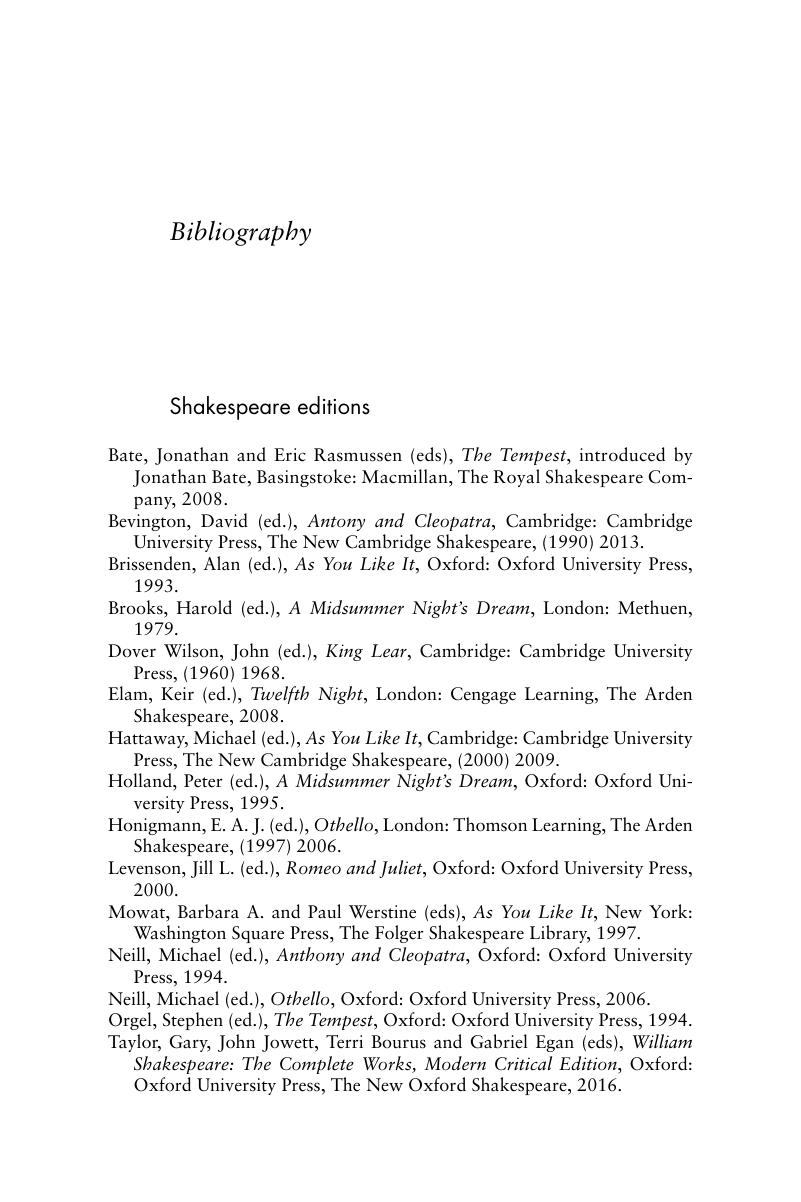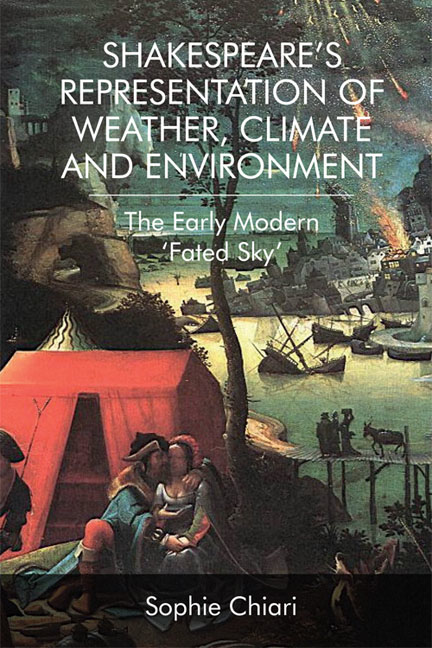Book contents
- Frontmatter
- Contents
- Illustrations
- Acknowledgements
- Textual Note
- Introduction
- 1 ‘We see / The seasons alter’: Climate Change in A Midsummer Night's Dream
- 2 ‘[T]he fire is grown too hot!’: Romeo and Juliet and the Dog Days
- 3 ‘Winter and rough weather’: Arden's Sterile Climate
- 4 Othello: Shakespeare's À bout de souffle
- 5 ‘The pelting of [a] pitiless storm’: Thunder and Lightning in King Lear
- 6 Clime and Slime in Anthony and Cleopatra
- 7 The I/Eye of the Storm: Prospero's Tempest
- Conclusion: ‘Under heaven's eye’
- Bibliography
- Index
Bibliography
- Frontmatter
- Contents
- Illustrations
- Acknowledgements
- Textual Note
- Introduction
- 1 ‘We see / The seasons alter’: Climate Change in A Midsummer Night's Dream
- 2 ‘[T]he fire is grown too hot!’: Romeo and Juliet and the Dog Days
- 3 ‘Winter and rough weather’: Arden's Sterile Climate
- 4 Othello: Shakespeare's À bout de souffle
- 5 ‘The pelting of [a] pitiless storm’: Thunder and Lightning in King Lear
- 6 Clime and Slime in Anthony and Cleopatra
- 7 The I/Eye of the Storm: Prospero's Tempest
- Conclusion: ‘Under heaven's eye’
- Bibliography
- Index
Summary

- Type
- Chapter
- Information
- Shakespeare's Representation of Weather, Climate and EnvironmentThe Early Modern ‘Fated Sky’, pp. 267 - 297Publisher: Edinburgh University PressPrint publication year: 2017

